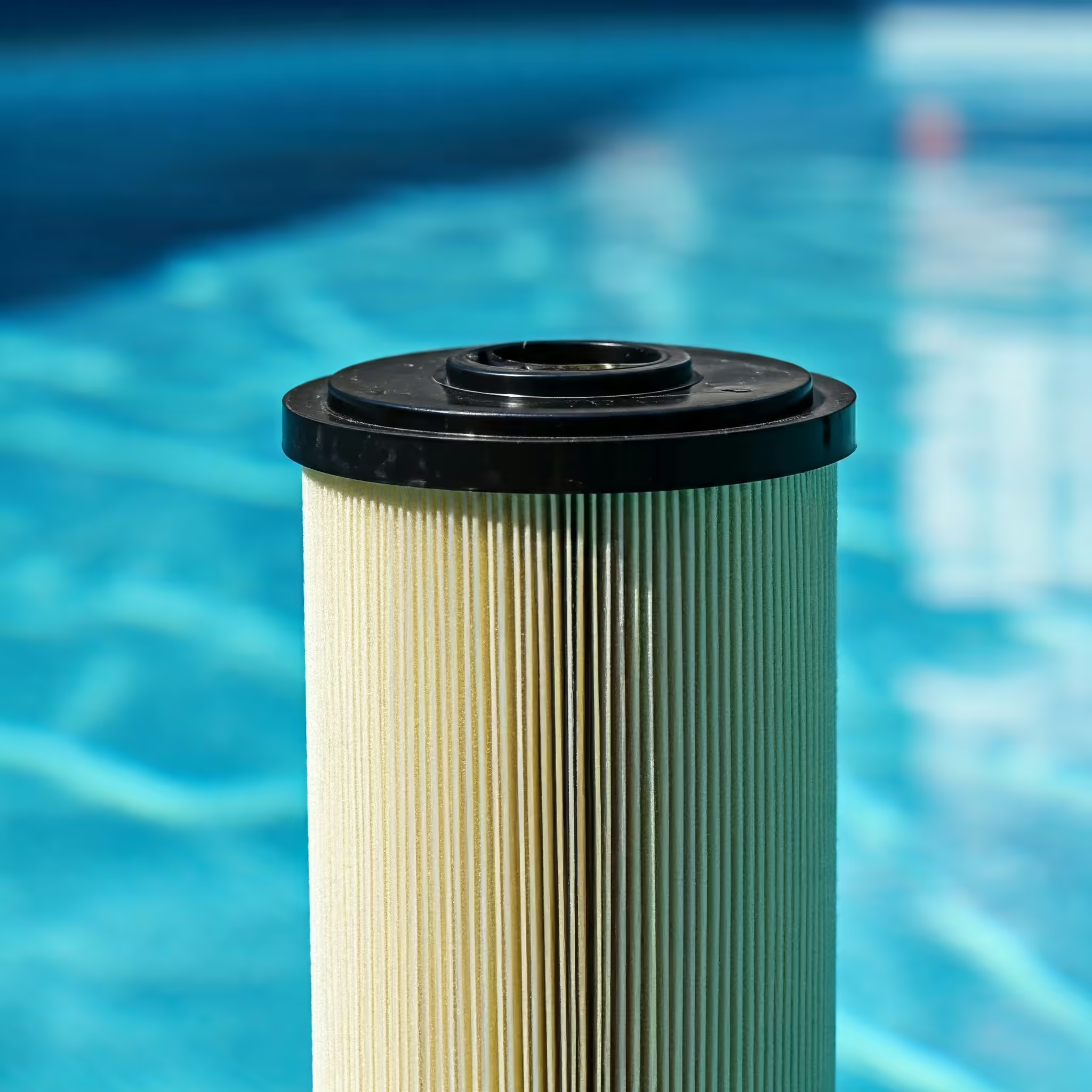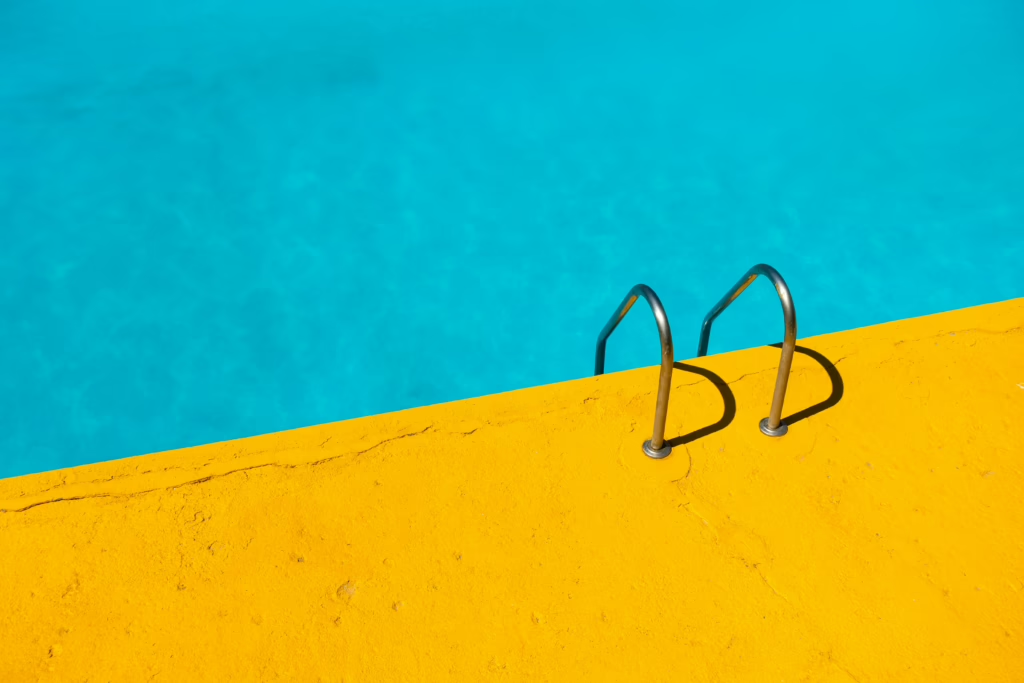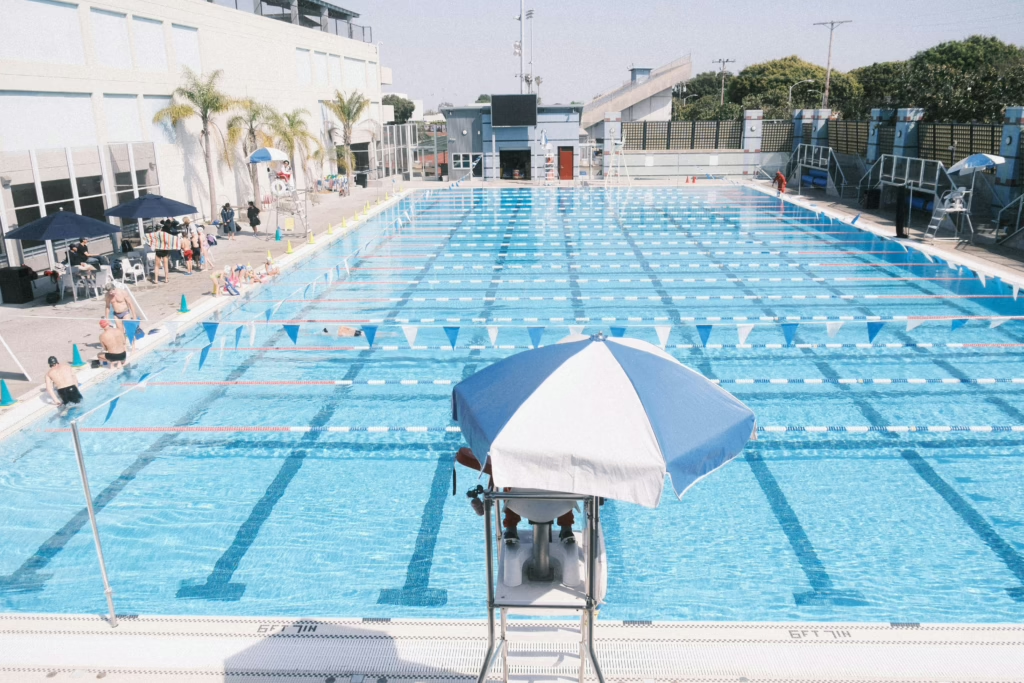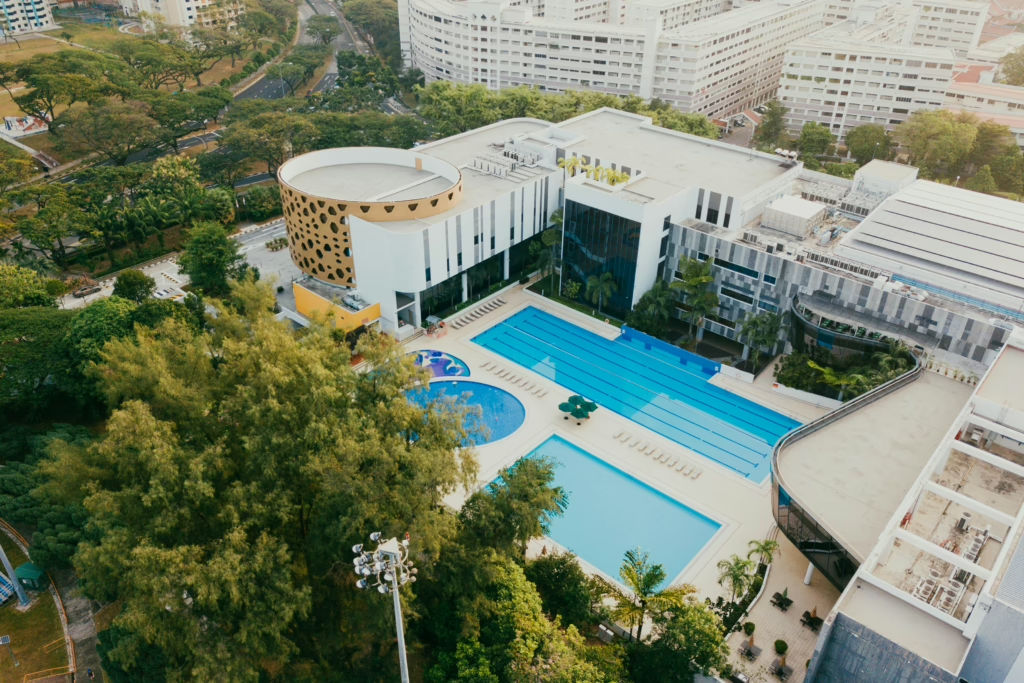A well-functioning filtration system is essential to keeping your pool water clear, healthy, and inviting. But not all pool filters are created equal—each has its own strengths and maintenance needs. Understanding the differences between cartridge, sand, and DE (diatomaceous earth) filters can help you select the right one for your pool and lifestyle.
In this guide, we’ll explore how each filter type works, their pros and cons, and when it makes sense to hire a professional service. If you’re in San Diego and searching for “pool filter cleaning near me,” PoolLogic is here to assist with all your pool maintenance needs.
Cartridge Filters: Efficient and Easy to Maintain
How They Work:
Cartridge filters trap dirt and debris using a pleated fabric material, often made of polyester. The water flows through the pleats, capturing particles as small as 10-15 microns. These filters are housed inside a cylinder that’s easy to remove for cleaning or replacement.
Pros:
- Low Maintenance: Simple to clean—just rinse with a garden hose and reinstall.
- Energy Efficient: Cartridge filters allow for better water flow, which reduces strain on the pool pump.
- No Backwashing Required: This saves water and makes cartridge filters eco-friendly.
Cons:
- Frequent Cleaning Needed: Expect to clean the filter every 4-6 weeks, depending on pool usage.
- Replacement Costs: Cartridges typically need to be replaced every 1-2 years, especially in high-debris environments.
Best For:
Cartridge filters are ideal for smaller pools or those located in areas with minimal debris. Their ease of maintenance and environmental friendliness make them a popular choice for many homeowners. If you’re unsure about maintaining one yourself, search for “pool filter cleaning near me” to find local experts.
Sand Filters: Durable and Low Maintenance
How They Work:
Sand filters use a bed of specially graded sand to trap dirt and debris. As water flows through the sand, impurities are captured, and clean water returns to the pool. These filters typically require backwashing to remove accumulated debris.
Pros:
- Long Lifespan: The sand only needs to be replaced every 5-7 years.
- Minimal Maintenance: Backwashing every 4-6 weeks keeps the filter running smoothly.
- Great for Large Pools: Sand filters handle high water volumes efficiently.
Cons:
- Less Effective Filtration: Sand filters capture particles down to about 20-40 microns, which isn’t as precise as other filter types.
- Water Usage: Frequent backwashing uses more water, which may not suit environmentally conscious pool owners.
- Pressure Buildup: Regular backwashing is necessary to prevent pressure from reducing filtration efficiency.
Best For:
Sand filters are a solid choice for larger pools or those looking for low-maintenance solutions. However, they might not be ideal if water conservation is a concern. Professional cleaning services are available if you need assistance—just search for “pool filter cleaning near me.”
DE Filters: Superior Filtration for the Cleanest Water
How They Work:
Diatomaceous earth (DE) filters use a fine powder made from fossilized algae to coat filter grids. This setup allows the filter to trap particles as small as 2-5 microns, offering the most precise filtration of all three types.
Pros:
- Exceptional Filtration: DE filters capture even the tiniest particles, providing crystal-clear water.
- Cleaner Pool Water: These filters are ideal for those with high water quality standards or special filtration needs.
- Durability: While DE powder needs regular replenishing, the filter grids themselves last for years with proper care.
Cons:
- More Maintenance Required: DE filters need frequent backwashing and new powder after each session.
- Higher Cost: DE filters and their upkeep tend to be more expensive than other filter types.
- Water Usage: Similar to sand filters, DE filters require backwashing, which uses a lot of water.
Best For:
If your priority is having the clearest water possible, DE filters are worth the extra effort. They are particularly well-suited for pools where water quality is paramount, such as those used by people with sensitive skin. To keep your DE filter functioning optimally, consider professional maintenance—search for “pool filter cleaning near me” to find a trusted service provider.
How to Choose the Right Filter for Your Pool
The right pool filter depends on several factors, including your pool size, environmental conditions, and personal maintenance preferences. Here’s a quick breakdown to help guide your decision:
- Cartridge Filters: Best for smaller pools and eco-conscious owners due to their easy maintenance and water-saving design.
- Sand Filters: Ideal for large pools and homeowners looking for a low-maintenance option with occasional backwashing.
- DE Filters: Perfect for those who want the cleanest water possible and don’t mind higher maintenance requirements.
Maintaining Your Pool Filter for Optimal Performance
Regardless of the filter type you choose, regular cleaning and maintenance are essential to keep your pool running smoothly. A clean filter ensures that your pool water remains clear and healthy while also helping your pump operate efficiently.
If you’re short on time or prefer professional help, PoolLogic offers comprehensive maintenance services for all filter types. From cartridge filter rinses to thorough DE filter cleanings, we’ve got you covered. Just search “pool filter cleaning near me” to find top-rated services in San Diego.
FAQs About Pool Filter Cleaning
1. How often should I clean my pool filter?
Cartridge filters need cleaning every 4-6 weeks, while sand and DE filters require backwashing about once a month.
2. What are the signs that my filter needs cleaning?
Look for cloudy water, reduced water flow, or an increase in pressure gauge readings—these are telltale signs that it’s time to clean the filter.
3. Can I clean my pool filter myself?
Yes! Cartridge filters are easy to rinse, while sand and DE filters require backwashing. For more complex maintenance, consider hiring a professional by searching “pool filter cleaning near me.”
4. What happens if I neglect filter maintenance?
A dirty filter can lead to poor water quality, algae growth, and increased strain on your pump, resulting in higher energy costs and potential damage.
5. How much does professional pool filter cleaning cost?
Services typically range from $75 to $150, depending on the filter type and pool size. Contact local providers for a detailed quote.
Final Thoughts
Choosing the right pool filter is essential for maintaining clean, healthy water and ensuring your pool runs efficiently. Whether you prefer the ease of a cartridge filter, the durability of a sand filter, or the superior filtration of a DE filter, proper maintenance is key to long-term performance.
For professional filter cleaning in San Diego, PoolLogic is here to help. Our skilled technicians will keep your filter in top condition, so you can focus on enjoying your pool. Contact us today or search “pool filter cleaning near me” to schedule your next service!



